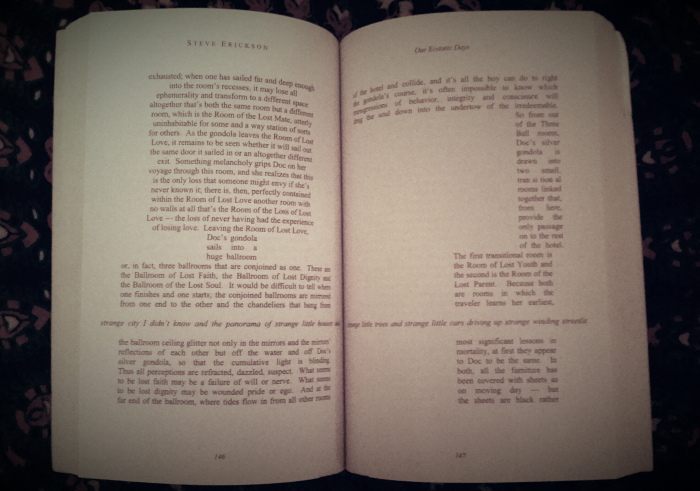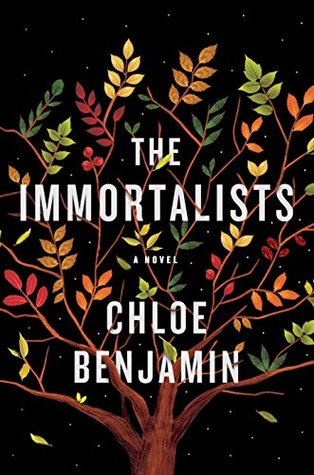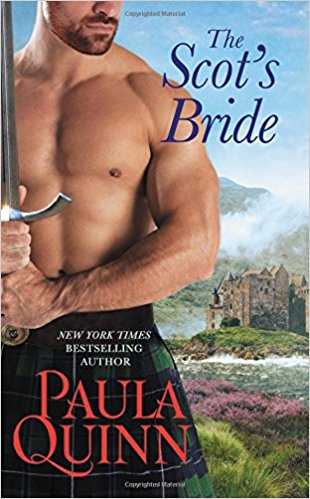Books written by our favourite authors are like old friends, who have accompanied us through years of our lives and seen us at various stages of togetherness. They have occupied that intimate space between the inner workings of our minds that only we know, and the external world. They have fed into our moods, perceptions and understandings. They have comforted and inspired us.
The first book I read by Steve Erickson was The Sea Came in at Midnight, back in 1999. He had published 5 novels before this, but my particular introduction to his work was a short paragraph written about this one in The Times newspaper. I no longer remember the description, but it sounded like nothing I’d read before and I knew I had to get a copy. I wasn’t disappointed. I was thrilled in fact, and having felt much the same about all of his other novels since, he has become my favourite contemporary author.
Unfortunately for me, Erickson’s books are not always easy to get hold of in the UK, so while I am eagerly waiting for my copy of his new release ‘Shadowbahn’ to arrive, I wanted to share some of my thoughts on his back catalogue.
Erickson is considered a key figure in the postmodern ‘avant-pop’ genre, but as that title in itself is not very descriptive, here are a few words firstly on his style. All of Erickson’s books share a surreal, dream-like mood. They are set in the real(ish) world, there are no outright magic or fantasy elements, but always there is something unsettling about them that makes the reader feel as though things aren’t quite normal. The timelines and locations shift. The stories follow multiple characters whose paths are linked in some way: sometimes they meet and sometimes, frustratingly, they just don’t. Events unfold like they would in a dream or fantasy, in that things that are to us startlingly irregular are treated with relative aloofness by the characters. I am in awe as to how something can read as so detached but simultaneously so emotionally rich.
There are recurring motifs that appear across all of the books, just like there are in dreams; ideas we come back to again and again. They are not big things that affect the plot greatly, so there is never a feeling of things becoming repetitive. They are more subtle; certain traits that characters share, like a stammer or a blue coat, or certain concepts like a train that stops unexpectedly in a station for days on end part way through a journey, or a single surviving twin, or a jar containing an eye. The effect is something akin to the feeling of deja-vu.
Erickson’s scenes flow beautifully into one another, and we are given enough details about the setting to form a picture but few enough that it feels a little hazy, and the reader has to fill in gaps with his own experience. This is one reason I think I have formed such a personal connection with the books. The pace is generally quite slow, despite a lot of things happening, which is yet another reason I describe the books as dream-like. Then again perhaps I just like to read them slowly to savour the enjoyment.
With great difficulty I have selected my top 5 Steve Erickson books to include here, but I honestly have not read one that I don’t love.
1. Our Ecstatic Days
After much deliberation I have chosen this one as my favourite. It is technically a sequel to The Sea Came in at Midnight, but I don’t feel that much is lost by reading them out of order.
A lake appears seemingly overnight in the middle of Los Angeles, and a protective single mother loses her son its depths. In her desperation to find him, she dives in too and finds herself in another version of her town where she becomes the oracle of the lake. The story follows her hopes and memories, her relationships and the way she is changed by her experiences.
Despite the obvious oddities, it is a heart-wrenching, all too real account of the feelings a parent has for their child and the potential for loss that comes with it. It is strange, haunting, metaphorical and very inventive, which you will see just by flicking through the pages. The text is arranged in unusual ways, and a prose piece which is part of the story is written continuously in single lines running through the main text, adding another dimension to the story.

2. Days Between Stations
Like fragments of the featured lost movie masterpiece, the story is a flowing series of frames, scenes and memories to be pieced back together by a man looking to recover his past. It is haunting, but also questioning of the nature of love, lust, and the way strangers’ lives slot together: meandering alongside one another or converging or diverging. Which interestingly brings to mind trains on their tracks, as perhaps the title alludes to.
3. Arc D’x
This one is an odd merging of American history with the idea of parallel universes and destiny. It is centred around Thomas Jefferson, and his love for his slave Sally Hemings, which is presented in such a way to question the interrelationship between love, power and entrapment. It also questions our sense of morality, and as such some scenes are very uncomfortable. But alongside these real issues, is a beautifully painted alternative reality and an unconventional love story that I couldn’t help but become emotionally involved with.
4. Rubicon Beach
Rubicon Beach is the story of a newly released criminal, lost and disorientated in Los Angeles where the very atmosphere sings to him on a spiritual level. He is enraptured by a strange and dark girl from the forests, who he follows faithfully like a siren only to meet and confront the ghosts of his own past. This one is highly metaphorical and has some lovely rich imagery that I can’t forget.
5. Amnesiascope
Amnesiascope is set in a dystopian Los Angeles, where everything is falling apart. It depicts a community of writers, artists, journalists and strippers, in a dance of love and chaos. To me it is about the insane power of inspiration in a dead world, and the ways in which our various failures affect us. It is about hope, connections, and how we ascertain what is important. Although dark and emotional at times, my overarching memory of this book is that it is also the most amusing and close to life of Erickson’s novels.
Having written all of this I am filled with emotion. I am nostalgic for the times I first enjoyed the books, I am keen to read them all again, I am excited to read Shadowbahn in which the twin towers suddenly reappear and form a place of worship and song. But perhaps most notably I am inspired to make progress with my own writing. If I can do half as good a job as Erickson at providing thought-provoking, artful, dreamscapes I will consider myself accomplished.
![The Secrets You Keep Blog Tour Banner (4)[2208].png](/ai/011/935/11935.png)





